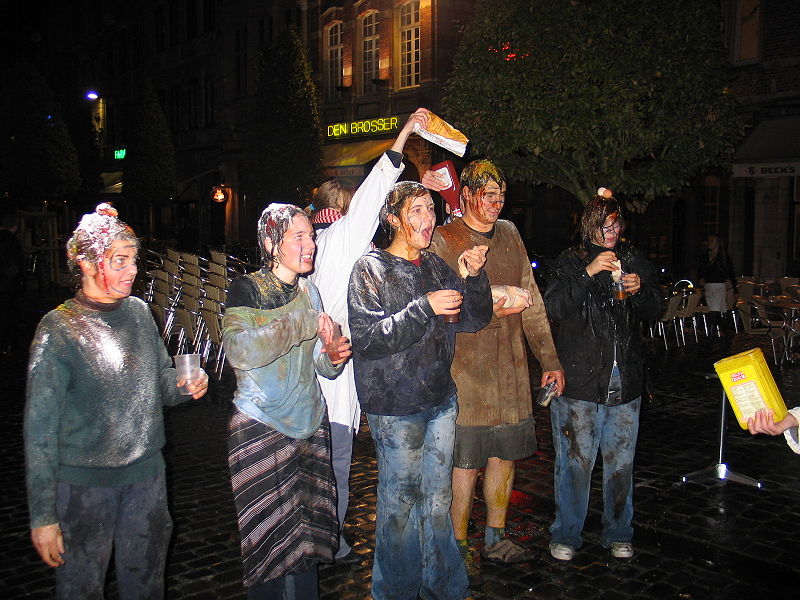Auctioning off students as part of their "baptism" to join a student association has been abolished in Leuven for the coming year.
The so-called "schachtenverkoop" - literally translated from Dutch as "shaft sales" - involves a new student being sold to the member of the associations who put in the highest bid, temporarily giving them a right of ownership, however, this will not be part of the "baptism" process, as is stated in the city's new baptismal charter.
"Many feel that baptisms and welcoming new students should be a positive story that students look back on with warm feelings for a lifetime. Without humiliation, without barriers to belonging," Luc Sels, the Rector of the University of Leuven (KU Leuven), stated in a press release on Wednesday.
In the past, KU Leuven faced criticism regarding student baptisms following the death of Belgian student Sanda Dia, who passed away in 2018 after a student hazing during which he had to drink large amounts of alcohol and fish oil and was urinated on by the now-disbanded Flemish student club Reuzegom, of which certain members attended the university.
Related News
- Antwerp looks to ban hazing 'ritual of humiliation'
- One in seven students begin self-harm during their student life, study shows
However, unlike student circles, student associations in Flanders are independent and have no ties with faculties, universities or colleges, meaning the discussion to change certain rituals cannot be done by higher education institutions alone.
This change to the 2021-2022 charter is an important step forward, as Leuven student groups agreed with the city's higher education institutions, the city of Leuven itself and the police to abolish this ritual, and put alternatives in place such as the allocation of a "senior year godfather or godmother."
As stated in the latest Leuven baptismal charter, which regulates rituals across all associations, this process "cannot be done by auction, nor by payment, and it should in no way lead to discrimination on the basis of gender, appearance or skin colour."
To further ensure the safety of baptisms in Leuven, the organised activities must be reported by associations in advance and will be checked against the baptismal charter with the various partners, according to Gil Vanommeslaeghe, the student inspector at Leuven police.
"This happens in dialogue with the students themselves. Of course, it is also closely monitored that the agreements made are always adhered to," he added.
All parties involved in creating this new charter also agreed to meet regularly this academic year to work closely together on a more sustainable vision of positive baptism and welcoming activities.

